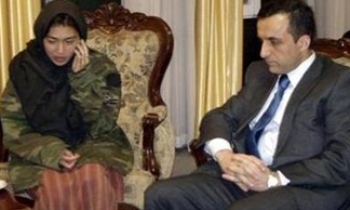Those planning to cover the football World Cup in Germany next year may have to wait until the crowds have gone home. FIFA, football's international governing body, announced its rules for press coverage today and included a ban on publishing digital images of the games for one hour after the final whistle.

Printed newspapers will be largely unaffected. But publishers with Internet operations are expected to refrain from using incoming live pictures (whether from agencies or staff photographers) until the embargo has passed. There are no provisions at all for publishing newspaper content on mobile telephones.
"This is a severe curb on the freedom of editors to inform their readers," reacted Timothy Balding, Director-General of the World Association of Newspapers, which opposed the delay and expressed its opposition to FIFA. "Editors the world over will be simply unable to provide readers with the information they have come to expect in the instant-news epoch.
"FIFA has reduced the publication time delay from two hours to one after WAN's representations," he said. "This is a move in the right direction, but not yet good enough. We don't see any rational reason for any time restrictions at all."
According to the rules for accreditation, news organisations wishing to cover the events, which begin on June 9, 2006, are required to agree to delay publication of digital photos. But Internet and mobile content providers that have bought licenses will be able to publish as soon as their rights permit.
Under the terms of the embargo, a picture shot in the first minute of a game could not be put on a newspaper website until nearly three hours later. The full terms and conditions, which also include a limit on the number of photos that can be published, can be found on the FIFA World Cup website.
The rules for the Confederations Cup and World Cup draw banned Internet publication of images until two hours after the final whistle, and then only allowed single still images (no sequences) to be published.

"This is not a question of live broadcast content, nor are we challenging the right of FIFA to sell licensing rights," said Balding. "The immediate publication of still images in no way affects these rights. We hope to convince FIFA, and all other international sports organisations that are considering similar rules, that it is in their best interests to allow the free flow of information from their games.
"FIFA should not forget that newspapers have made a historic contribution to the popularity and development of football world-wide and continues to do so."
A WAN delegation met FIFA in September this year to open a dialogue and further meetings are expected. The Paris-based WAN, the global organisation for the newspaper industry, recently created a Sports Media Working Group to examine the issue as sports bodies focus on selling Internet and broadcast rights and place increasing restrictions on newspaper coverage of events. The committee comprises directors of national newspaper associations that are members of WAN.









